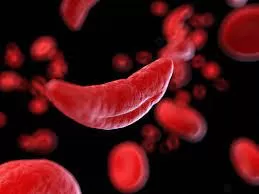Researchers at the Karolinska Institutet have made a groundbreaking discovery linking a rare and severe form of psoriatic arthritis to an enzyme responsible for producing oxygen radicals. This finding, published in the journal EMBO Molecular Medicine, offers new avenues for slowing down or halting the progression of the disease.
Psoriatic arthritis mutilans (PAM) is a debilitating joint disease associated with psoriasis, characterized by the breakdown of bone tissue and joint structures, particularly in the small joints of the fingers and toes. Despite its severity, the genetic risk factors underlying PAM have remained elusive until now.
The study, initiated over a decade ago by Mona Ståhle at Karolinska Institutet, involved collaboration between dermatologists and rheumatologists across Nordic countries. Previous publications have detailed the clinical and epidemiological aspects of PAM, providing crucial background information for this groundbreaking research.
In this latest study, researchers analyzed the genomes of 61 patients diagnosed with PAM in the Nordic countries. They identified rare gene variants of NADPH oxidase 4 (NOX4) in four of these patients. NOX4 is an enzyme known for its role in producing oxygen radicals, highly reactive molecules that can cause cellular and tissue damage. Additionally, NOX4 is involved in the formation of osteoclasts, cells responsible for breaking down bone tissue.
The researchers hypothesize that the identified NOX4 variants in PAM patients lead to an increased production of oxygen radicals, resulting in accelerated breakdown of bone tissue and joints.
Isabel Tapia-Paez, a researcher at the Department of Medicine, Solna, Karolinska Institutet, and the lead author of the study, expressed optimism about the findings. She noted that this study is the first to establish a connection between elevated levels of oxygen radicals and the development of PAM. This discovery holds promise for the development of novel treatment strategies aimed at alleviating the suffering of severely affected patients.
The research was made possible through funding from various organizations including the Swedish Dermatology Foundation, Swedish Rheumatism Association, King Gustav V’s 80th Anniversary Foundation, Swedish Psoriasis Foundation, and the European Academy of Dermatology and Venereology (EADV).
In summary, this groundbreaking study not only sheds light on the genetic underpinnings of PAM but also paves the way for innovative approaches to managing this debilitating condition, offering hope to patients grappling with its devastating effects.












